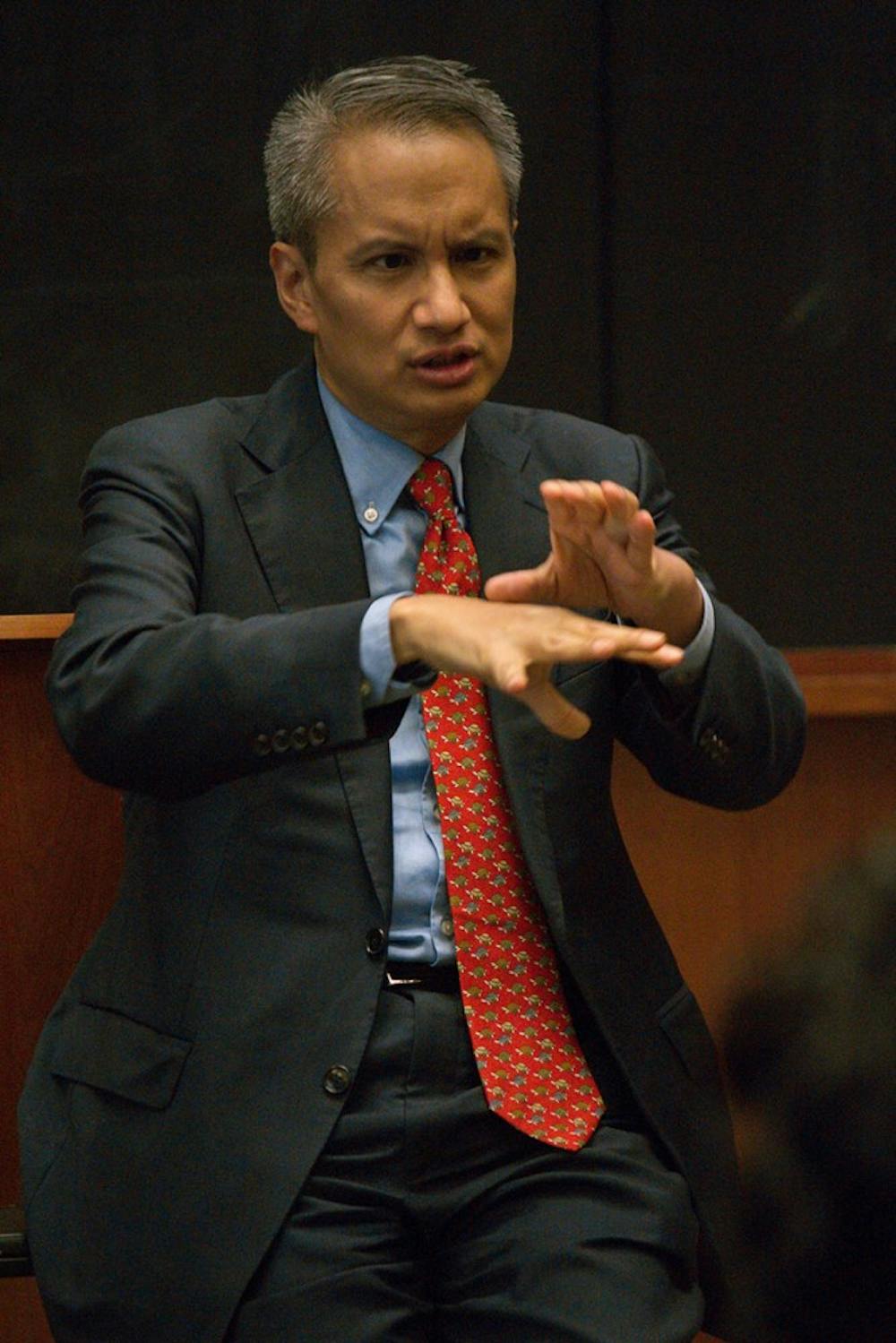University of Hong Kong visiting Prof. Alejandro Reyes addressed University students Friday regarding current protests in Hong Kong, often called the “Umbrella Revolution."
“I have been working on the Hong Kong protests all summer long,” said fourth-year College student Gabriel Noronha, one of the organizers of the event. “I’ve been monitoring them from far before Western media picked up on it. … I really wanted to have something which could engage the student body and get them more informed about what is really going on, sort of beyond what’s on the news headlines.”
Currently, in Hong Kong, several hundred protesters are stationed in Admiralty, outside the Central Government’s offices, as well as Causeway Bay, a shopping and residential district, and the Mong Kok area, a business and residential district.
The main organizations involved in the protests are the Hong Kong Federation of Students, Occupying Central with Love and Peace, and Scholarism, led by a 17-year-old university student.
Reyes said the election process of the chief executive of Hong Kong, currently Leung Chun-ying, was the crux of the current conflict.
“The population of Hong Kong has been agitating for the opportunity to directly elect [an executive] because the current chief executive, Leung Chun-ying was elected by an electoral college of 1,200 people — people who are chosen by professional groups: legislatures, business associates, professions,” Reyes said. “The way the election committee was set up, was mostly pro-Beijing, so it was not surprising that Ying, someone who was pro-China, was elected.”
For someone to be elected, they need to have the support of one-eighth the election committee.
“Beijing had promised the Hong Kong people that by 2017 they could have universal suffrage — everybody choosing the chief executive — but there would be a nominating committee that would be provided for in the basic law of Hong Kong’s constitution,” Reyes said. “At the end of August, the standing committee of [the National People's Congress] said from 2017 [they] can directly elect the chief executive with universal suffrage, but the nominating committee will elect two or three candidates, and these candidates must get the support of half the nominating committee. So going from one-eighth to half the nominating committee, was one little slap in the face to the pro-democracy side.”
Agitated protesters are calling for open and public nominations.
“When they asked hard-core students to not aggravate the situation by taunting the police, they refused to, and now the police have ... overreacted and now we have a situation that is somewhat unguided or rather misguided,” Reyes said. “Then you have a government that does not know how to deal with them ... and the capacity of the police is limited. [The police] messed up by using tear gas so early on [and] got chastised by the international community.”
Reyes said it was unrealistic and illogical to expect China — a sovereign power — to give Hong Kong democracy. He maintained that the one country-two systems approach could be practiced by China because it recognizes Hong Kong’s special status.
“Pro-democracy people have become very fragmented,” he said. “All the different groups don’t quite work together, they can’t agree on a common platform, even on how the nominations committee should be. ... This has been one of the failings [of the movement]."
Ryes also stressed how the protests were being misrepresented by social media.
“It is not a revolution, it is not about overthrowing a government,” he said. “The protesters said it is a movement. This is an important distinction, one that mainland leaders understand.”
Reyes was educated at Harvard University and Oxford University. He serves as a senior advisor in the eighth US-Asia Institute in Washington, D.C. and has served as a consultant to the World Economics Forum in Geneva since 1997.







